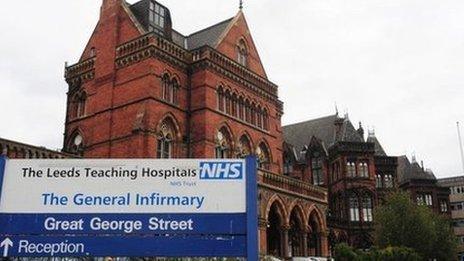Heart surgery: Three hospitals told to stop complex treatment
- Published
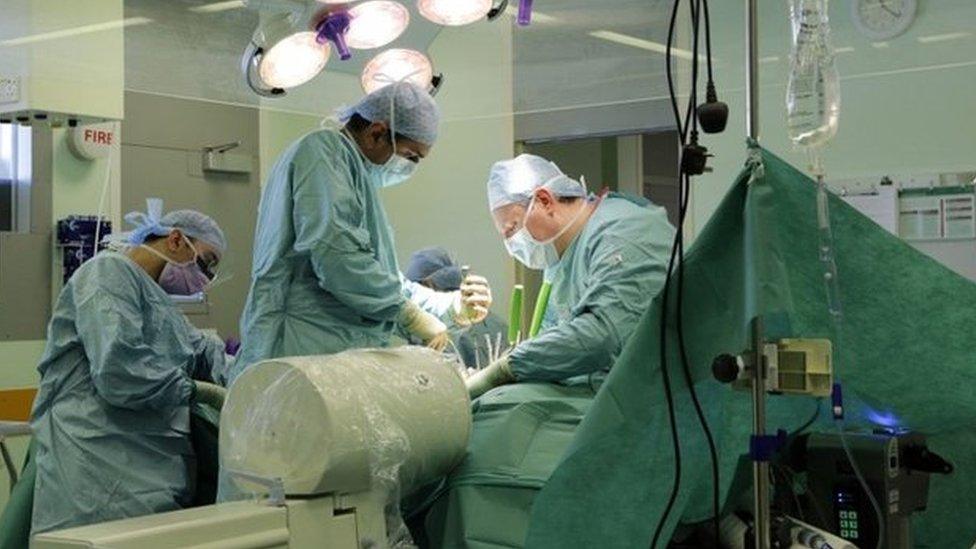
Three major hospitals across England that provide complex heart care have been ordered to stop doing so amid concerns over standards.
NHS England has told three units - in Leicester, Manchester and London - to halt complex surgery on patients born with heart problems by April 2017.
Five other hospitals providing treatments other than complex surgery will have to stop those services too.
The sites affected are already promising to fight the decisions.
One hospital boss even described the announcement as "irrational and reckless".
The services being targeted provide care to people born with congenital heart problems, such as holes in the heart, which affect nine in every 1,000 babies, not other type of heart services.
The announcement comes after attempts to reorganise services had to be abandoned three years ago following legal challenges by local campaigners and the hospitals themselves.

'We struggled as it was'
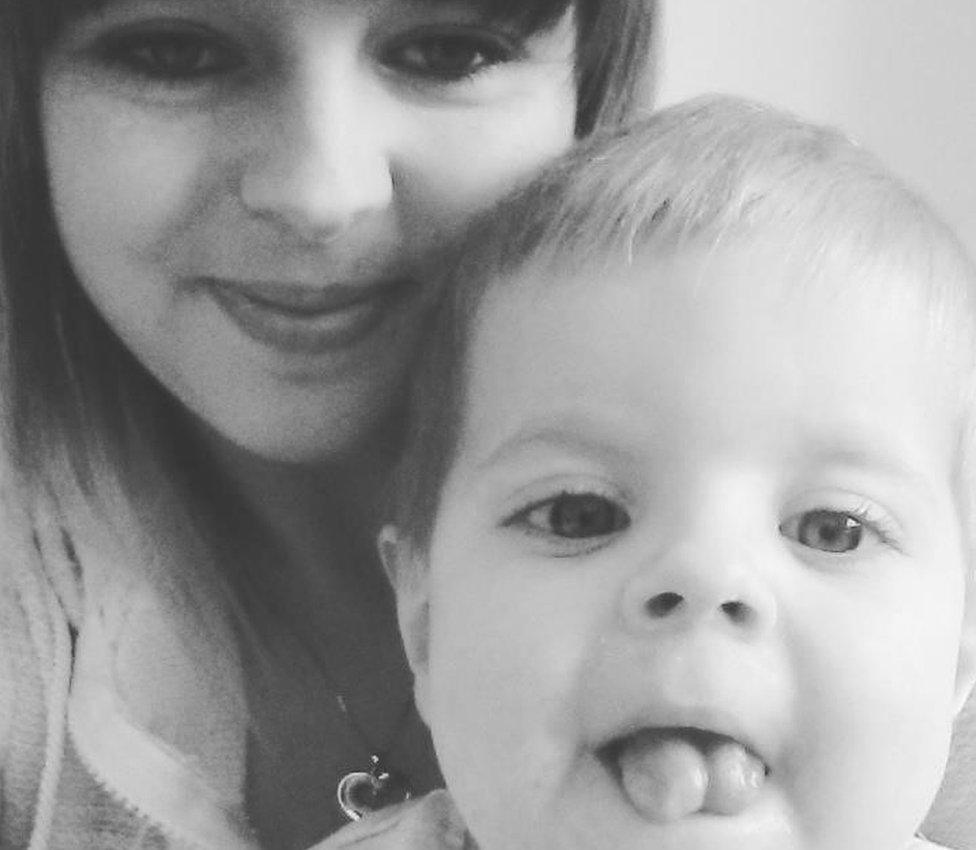
Danielle Westerman's son Declan has had two heart operations
Danielle Westerman's two-year-old son Declan has been a patient at Leicester's Glenfield Hospital.
He has had two open heart operations and is due to have another next year.
Ms Westerman, from Ilkeston, Derbyshire, says she already has trouble getting to Leicester as neither she or her partner can drive and rely on a lift from her elderly grandfather.
She said: "Where would we have to go now? How would we even get there?
"Glenfield is only a hour away from me, this is going to be so difficult. We struggled as it was."

Last year NHS England established a set of standards that it wanted hospitals to meet to ensure both child and adult patients got high quality care.
These include the requirement that surgeons work in teams of four and see at least 125 patients a year each to ensure they keep their skills up-to-date.
Bosses at NHS England have now announced which trusts are not meeting the standards and which need to close services and transfer care elsewhere.
They have said:
Surgery will stop at Central Manchester University Hospitals NHS Trust, University Hospitals of Leicester NHS Trust and the Royal Brompton and Harefield NHS Trust in London
Services at Liverpool Heart and Chest Hospital will be upgraded so it can provide complex surgery to adults to complement the children's service provided by the city's Alder Hey Hospital
Newcastle Hospitals NHS Trust will be allowed to keep doing surgery despite failing to meet key standards because it has a children's heart transplant unit - one of only two in the country - which would not be viable without surgery continuing. Instead the hospital will be given extra support
Performance at Bristol Children's Hospital will be monitored after the critical report last week, but it will still be able to provide complex surgery
Blackpool Teaching Hospitals NHS Trust, the University Hospital of South Manchester, Papworth Hospital in Cambridgeshire, Nottingham University Hospitals NHS Trust and Imperial College Healthcare in London will have to stop providing complex medical care, which includes procedures such as widening the arteries and repairing holes in the heart
Overall, it means the number of units providing the most complex heart surgery drops from 13 to 11. The number of "level two" units providing treatments other than complex surgery drops to five.


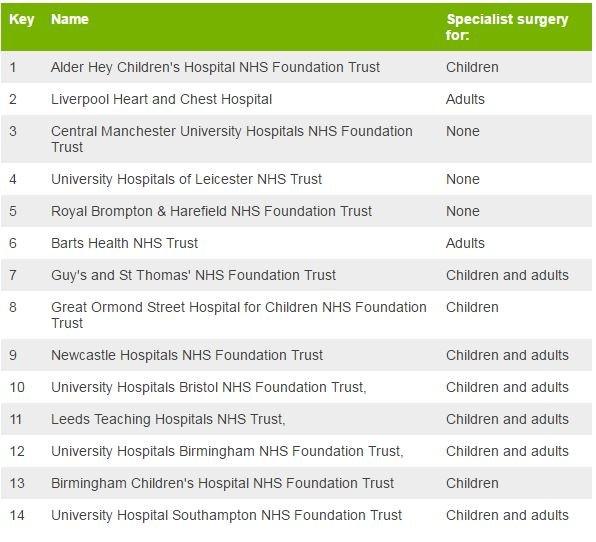

Analysis
Carrying out surgery on children with congenital heart problems - some of them babies just born - is one of the most complex areas of care in the NHS.
There are fewer than 4,000 operations done each year with 80% of children born with these heart defects surviving into adulthood.
But how and where such surgery is carried out has been at the centre of a fierce debate since the publication in 2001 of a damning report into high death rates among babies undergoing heart surgery at Bristol Royal Infirmary.
Last time plans were put forward in 2011 it led to a bitter fallout, pitting hospitals against senior health bosses. Two years later the proposals were scrapped with NHS bosses told to look again. The decisions announced today, covering both adult and children's services, are the result.
Their argument is that units have to be big enough to allow surgeons to carry out operations on a regular basis. But the response of the hospitals affected suggests this will not be the last word on the issue.

NHS England said while it would mean some patients travelling further than they previously needed to, the care that would be provided would be safer in the long-term.
Dr Jonathan Fielden, of NHS England, said: "There has been a great deal of uncertainty over the future of congenital heart disease services. We owe it to patients, families and staff to end that uncertainty and provide a clear direction."
NHS England said it would discuss the decisions with the hospitals affected and carry out consultations where necessary, but some hospitals bosses have already vowed to fight them.
British Heart Foundation chief executive Simon Gillespie said while he did not want to comment specifically on which units should close, centralising services in this way was the right move and should happen as "quickly as possible".
"It is absolutely critical that children and adults with congenital heart disease and their families receive safe and effective care, wherever they live."
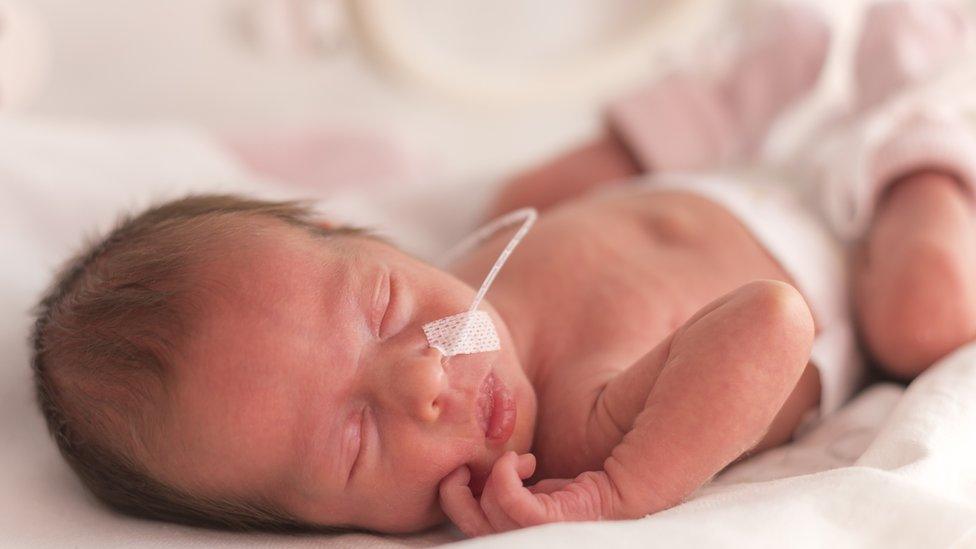
Nine out of every 1,000 babies are born with congenital heart problems
Royal Brompton and Harefield chief operating officer Robert Craig described the announcement as "extraordinary".
He said stopping surgery would have a knock-on effect and put other services at risk, including paediatric intensive care, respiratory care and other heart services.
"Of one thing they can be sure, we will be working closely with NHS England to ensure that full and frank discussions take place to determine what is behind this irrational and reckless announcement."
John Adler, chief executive at the Leicester trust, said: "We are confident that our clinical outcomes are now amongst the best in the country so we strongly disagree with NHS England's decision and will not sit by whilst they destroy our fabulous service."
- Published8 July 2016
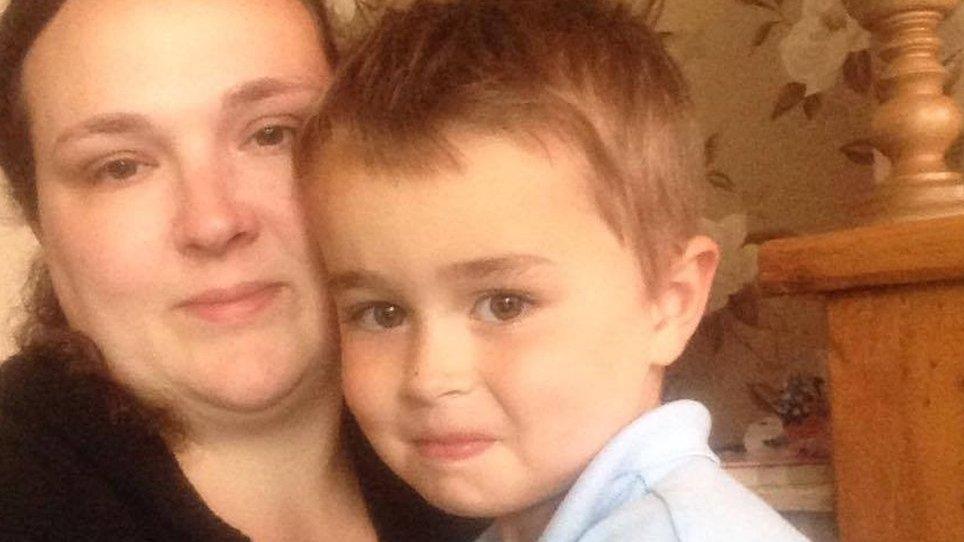
- Published8 July 2016
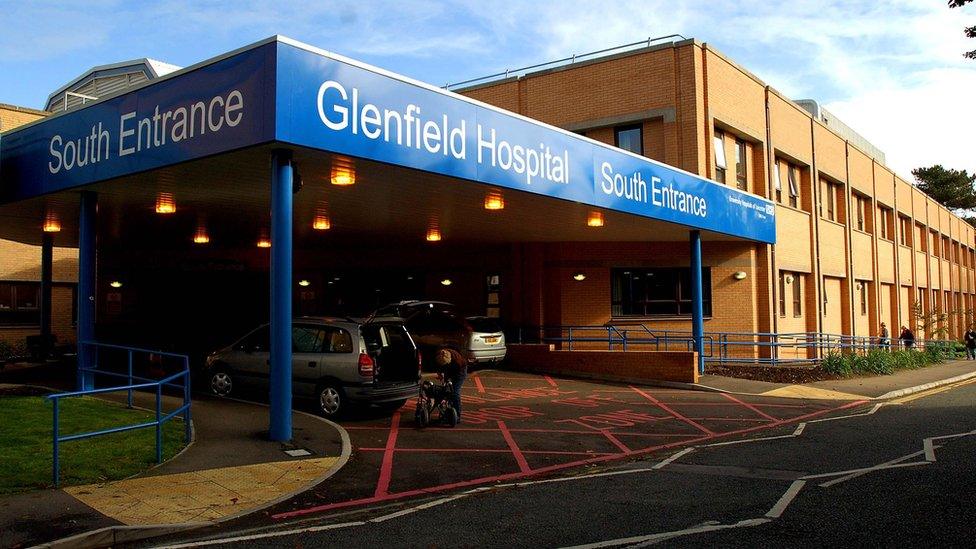
- Published21 July 2015
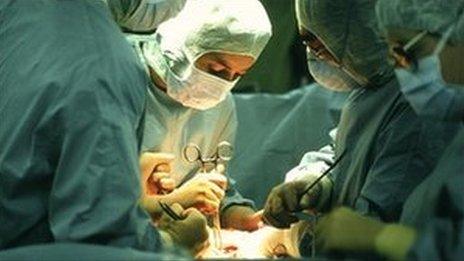
- Published3 April 2015
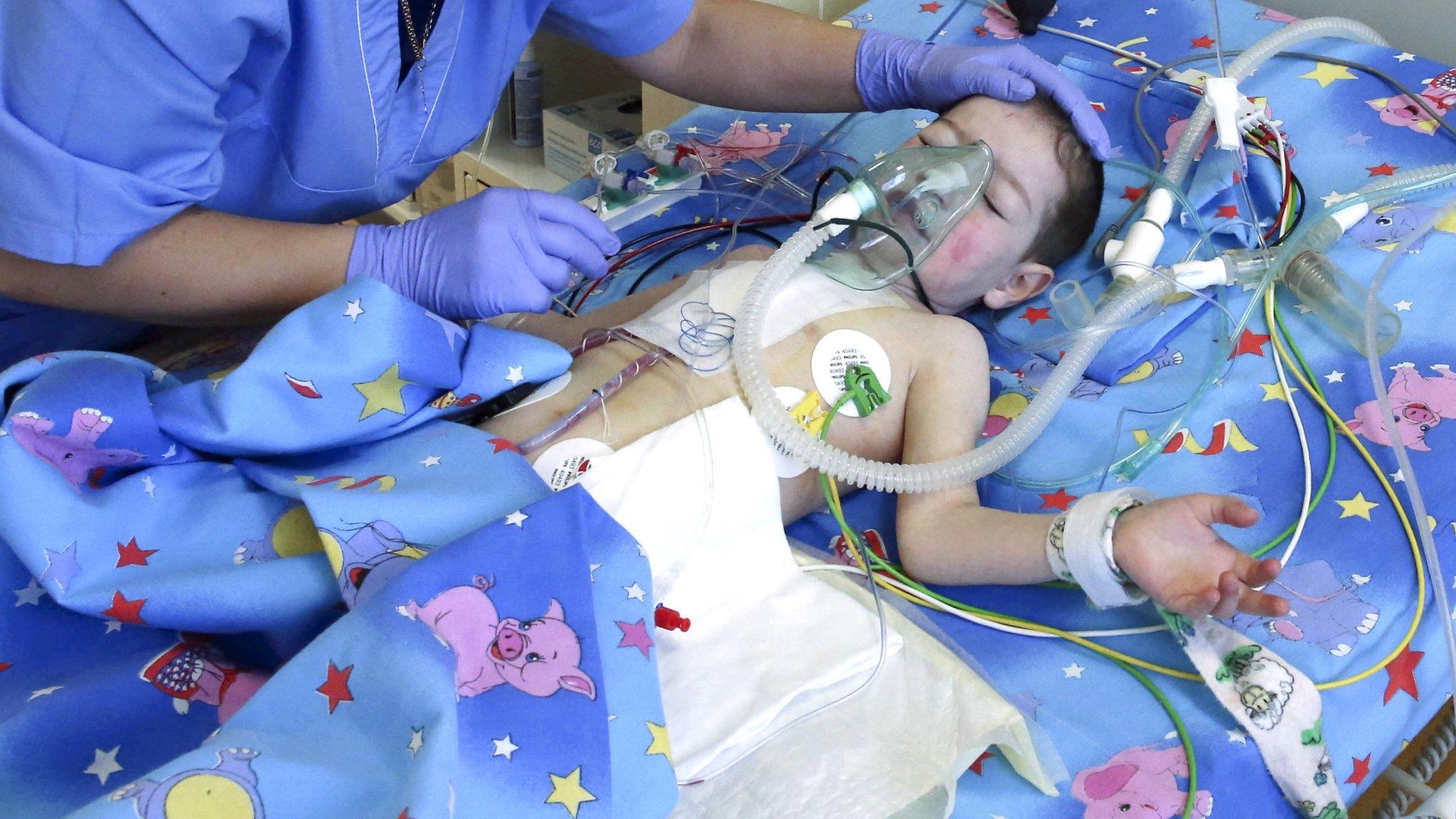
- Published15 September 2014

- Published2 February 2015
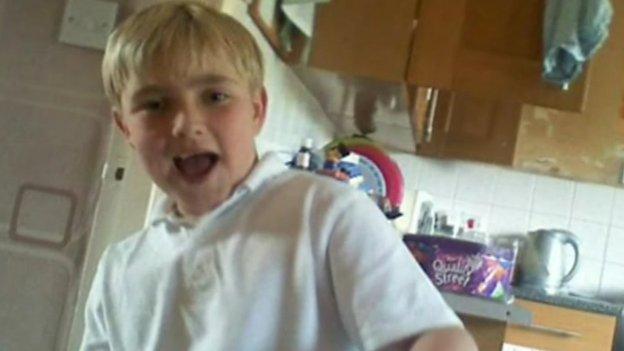
- Published14 March 2014
